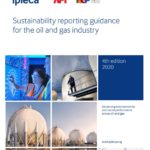By Amanda Paulson | Staff writer of The Christian Science Monitor
"Sustainability" is a big buzz word these days for environmental groups, activists, government officials. And now, corporations.
More large companies, from auto giants to airlines, are producing "sustainability reports" in addition to or as part of their traditional annual reports. In them, they provide a detailed accounting of the firm’s environmental and social performance. McDonald’s released its first such report last week, and Shell came out with its fifth report a week earlier.
It’s easy to be skeptical. The reports are voluntary, and a few of the fledgling efforts have an aura of "greenwashing" (putting an environmental spin on less than exemplary practices). But many seem to be legitimate, transparent, often self-critical reports.
They come in response to a growing demand for information from shareholders, socially responsible investment (SRI) funds, governments, and concerned citizens.
Companies are also receiving assistance in how to conduct these reports. This month, the Global Reporting Initiative (GRI) was formally inaugurated at the United Nations. The multinational effort, which aims to standardize sustainability reporting procedures, was conceived in 1997 by the Coalition for Environmentally Responsible Economies (CERES), a Boston-based group that encourages companies to adopt environmental practices. The GRI guidelines emphasize what is sometimes referred to as the "triple bottom line" of economic, environmental, and social indicators.
Already more than 100 organizations including Ford, Canon, Proctor & Gamble, and Nike have released reports that use these guidelines. "We are astonished by how rapidly this has been embraced around the world," says Robert Massie, director of CERES and a member of the GRI board of directors. He gives a variety of reasons for the trend, including recognition that a good reputation is critical. "If you think of reputation as a powerful asset, then this is a form of protecting your asset," says Mr. Massie. "Companies that ignore this completely sometimes pay a big price."
Many companies agree. General Motors, for example, has produced sustainability reports for eight years now. GM wants the consumers to know that the company has nothing to hide, says spokesman Dave Barthmuss. "What we’re doing it’s a brand reputation," says Mr. Barthmuss. "We want people to feel good about the GM plant in their community, about the product they’ve purchased, about the dealer down the block."
Increased interest in socially responsible investing has fueled the fire even more. "That started as a little dribble, and has come on like gangbusters in recent years," says Bill Blackburn, vice president of corporate environment, health, and safety for the pharmaceuticals firm Baxter International.
He adds that requests for the type of information found in sustainability reports a company’s greenhouse-gas output, or waste-management system for instance have increased rapidly.
Baxter is somewhat unusual in that it began environmental reporting 10 years ago, as a private, internal project.
Indeed, Mr. Blackburn says some of the primary benefits are still felt within the company happier employees, better communication, increased efficiency.
The firm uses its report each year to set company-wide goals. One such goal, to reduce air toxins by 80 percent from 1988 to 2005, has already been surpassed, effectively reducing toxins by 96 percent. Blackburn credits the stringent reporting for motivating employees.
But some environmentalists say that while sustainability reporting is a step in the right direction, it’s not sufficient.
"If a company reports, even if it does so annually, even across the triple bottom line, I don’t think that even that is a guarantee that a company is headed in the right direction," says John Elkington, chair of SustainAbility, a London-based think tank, consulting firm, and public interest group. Enron, he notes dryly, produced such a report.
He hopes that, eventually, some companies will actually lobby for additional government regulations.
"At a certain point, [more responsible companies] will recognize they’re assuming an additional cost that their competitors aren’t [incurring]."
Ultimately, he says, these companies will push for rules that will level the playing field.
What buyers now tell firms
For consumers, the environment is an increasingly important subject, says Paul Leinberger of RoperASW, a market- research firm that conducts an annual "Green Gauge" poll. But many shoppers send mixed signals to firms trying to tap that concern.
"Most Americans believe it is incumbent on all businesses to have environmentally sensitive products," he says. But "they’re not willing to pay for them."
Green Gauge also showed that 41 percent of Americans think "green" products often don’t work well. That creates a marketing quandary.
Increasingly, the campaigns that focused in a general way on "helping the planet" are giving way to pitches touting the performance of specific products that are also "green" such as the Toyota Prius or the Maytag Neptune washing machine.
"Consumers go to the store to buy a box of laundry detergent, not a box of environment," notes Jacquelyn Ottman, president of the green marketing firm J. Ottman Consulting. "The environment is the second, third, or fourth criterion you look for, but the real issue is that it’s on the list, and it’s creeping up the list."
For example, Tide detergent relies on bright packaging and a recognizable logo. But Ms. Ottman points out that the back of the box also mentions that the soap is biodegradable, comes in recycled-content packaging, and is safe for septic systems.
"Would you buy that or a thing called ‘Happy Planet’? " she asks, adding that "more consumers are looking at the back of the product."
Philips Electronics has renamed its energy-efficient fluorescent "EarthLight" bulbs "Marathon" bulbs, and enjoyed greater success.
That, say observers, doesn’t mean consumers are less interested in the environment, only that when green-friendliness is the only feature advertised, they’re less inclined to buy.



